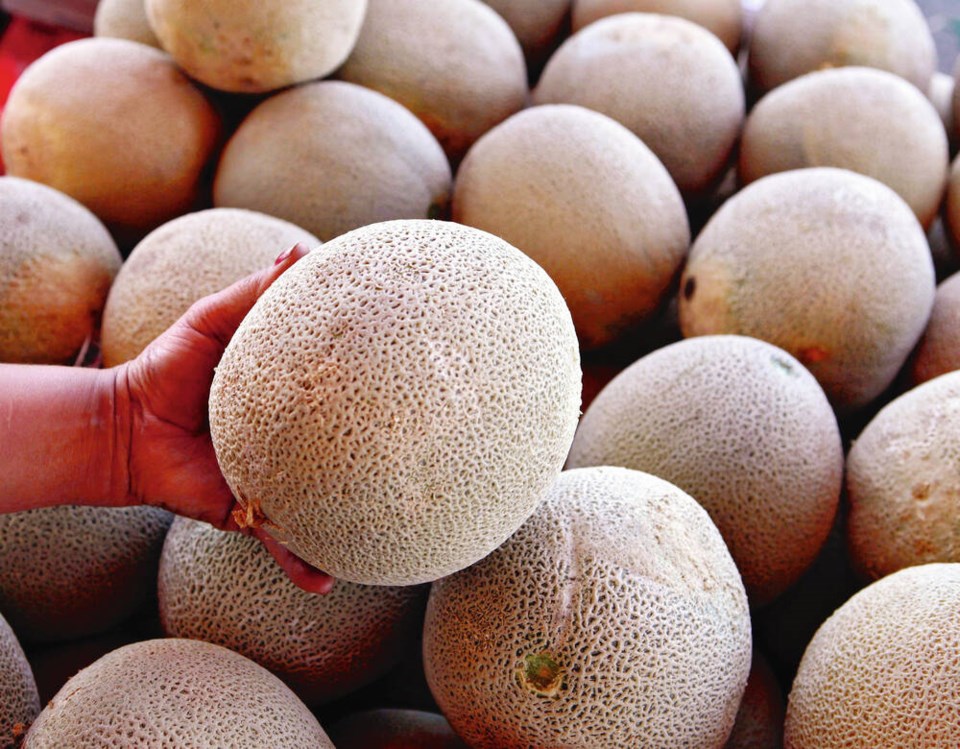Almost half the 12 people sickened as part of a salmonella outbreak linked to Malichita- and Rudy-brand cantaloupes are from the Island Health region, according to the B.C. Centre for Disease Control.
Five people in the Island region have fallen ill so far, up from just two people on the Island who fell ill by mid-November.
Those who became ill in B.C. range from an infant to an 85-year-old, the said Monday. Those under five and over 65, and people with weakened immune systems, are more likely to have a severe illness from .
The Public Health Agency of Canada Friday that one death has been connected to the outbreak, although it offered no details.
It said 63 confirmed salmonella cases have been linked to the outbreak in Canada and 17 people have been hospitalized — one of whom lives in B.C.
The B.C. CDC issued food-recall warnings three times in November for Malichita cantaloupes sold between Oct. 11 and Nov. 14.
On Nov. 24, it updated its warning to include Rudy-brand cantaloupes sold in October and November, starting Oct. 10.
The cantaloupes were distributed across the country, and the agency says confirmed salmonella cases have been identified in five provinces so far: Quebec, Ontario, British Columbia, Newfoundland and Labrador and Prince Edward Island.
It says it’s investigating other potential cases and notes the U.S. Centers for Disease Control and Prevention are also probing a salmonella outbreak linked to cantaloupes they describe as being the same genetic strain as the one in Canada.
U.S. health officials said two people had died and 45 people were hospitalized in that country due to the outbreak as of Friday.
Salmonella infection causes symptoms including diarrhea, fever, and abdominal cramps that develop six to 72 hours after consumption and usually last four to seven days, according to the B.C. CDC.
Most people do not need antibiotics and recover without treatment, according to the centre.
The centre is advising people to discard and not to consume any packaged or individually labelled Malichita cantaloupes or cantaloupes of an unknown origin.
— With files from The Canadian Press



